 …NCDMB lists 80 opportunities worth $100bn
…NCDMB lists 80 opportunities worth $100bn
…FG to create network, timelines for identified projects
… Communities to form cooperatives for Modular Refineries
Over 1000 delegates including the Governor of Bayelsa State, Hon Seriake Dickson; Minister of State for Petroleum Resources, Dr. Emmanuel Ibe Kachikwu; Managing Director of Shell Petroleum Development Company (SPDC), Mr. Osagie Okunbor and many other dignitaries participated in the just ended 2nd edition of the Nigerian Oil and Gas Opportunity Fair (NOGOF) organised by the Nigerian Content Development and Monitoring Board (NCDMB) in Yenagoa, Bayelsa State.
The fair, which had the theme ‘’Maximizing Oil & Gas Industry for the Benefit of the Nigerian People’’ was held at the NCDMB 1000 capacity conference hall.
Delivering his welcome address, the Executive Secretary NCDMB, Engr. Simbi Kesiye Wabote said the Board had identified over 80 oil and gas opportunities that would be developed by major international and indigenous operating companies in the short and long term, with the estimated cumulative value of the projects exceeding $100bn.
The projects are contained in the Compendium of Nigerian Content Opportunities in the Oil and Gas Industry launched at the event. The projects and opportunities cover the upstream, midstream and downstream sectors of the Nigerian oil and gas sectors and were collated from presentations by various oil and gas companies at the first edition of NOGOF in 2017 and updated at workshops organised by the Board in October 2018.
Wabote explained that the compendium was intended to create a database of Nigerian Content opportunities and help indigenous and potential investors prepare, improve their capacities and capabilities to participate in available and upcoming contracts and projects.
He added that the compendium gives the industry a five year outlook and enables stakeholders to key into those opportunities. “Two years ago when we held this workshop we talked about ExxonMobil’s Ibot, Total’s Ikike and NLNG Train 7. Today they are going through the funnel and within the next few weeks they would take Final Investment Decisions (FIDs) on Ikike and Ibot and before the end of the year they would take FID on Train 7. We focus and follow through on those opportunities. Every two years we roll on new opportunities and add to the compendium.”
In his comments, Kachikwu, who had just been re-elected as the President of the African Petroleum Producers Organisation (APPO) for a 3rd term at the association’s meeting in Malabo, Equatorial Guinea, pointed out that the speedy development of the identified $100bn opportunities would require the roles and contributions of various entities, including the Department of Petroleum Resources (DPR) for approvals, Nigerian National Petroleum Corporation (NNPC) for negotiations and the oil companies, who would take FIDs, among others.
He promised that the Ministry of Petroleum Resources would midwife a special arrangement that would involve every agency of government and entity that has a role to play in the approval and development of the identified projects. “We must avoid a situation whereby NCDMB might work very fast and gets to the goal post and others are just taking off. We would create an arrangement that involves everybody and be clear about the deliverables, timelines and opportunities and bring out something which everyone can then drive.”
 On government’s support for modular refineries as a strategy for ending crude oil theft, vandalism and environmental degradation, Kachikwu hinted that the Ministry of Petroleum would develop a policy that would encourage persons living in oil producing communities to form cooperatives, with which they can set up and own modular refineries. He said, “We would have some agreements with them to stop the sabotage. We can work with NCDMB to put in a bit of funding. Then we put in technical know-how, business structure around it and have a major shareholder who is an entrepreneur. That way the locals get to participate, get jobs, polish their skills sets, crude is paid for and not stolen and the environment is better dealt with.”
On government’s support for modular refineries as a strategy for ending crude oil theft, vandalism and environmental degradation, Kachikwu hinted that the Ministry of Petroleum would develop a policy that would encourage persons living in oil producing communities to form cooperatives, with which they can set up and own modular refineries. He said, “We would have some agreements with them to stop the sabotage. We can work with NCDMB to put in a bit of funding. Then we put in technical know-how, business structure around it and have a major shareholder who is an entrepreneur. That way the locals get to participate, get jobs, polish their skills sets, crude is paid for and not stolen and the environment is better dealt with.”
Speaking further the Minister expressed regret that the potentialities of the Nigerian oil and gas sector was not being maximized and counselled stakeholders to accelerate their activities because oil is a fast degenerating asset and developed countries were already switching to cleaner energy options.
He also challenged industry players to strive for improvements in all facets of their operations, insisting that Nigerian should be producing over 7m barrels of crude oil every day and enough gas to meet its electricity needs. Kachikwu also posited that the sector should have rapidly developing infrastructure, while oil bearing communities ought to be well developed with proceeds from the sale of crude oil. He encouraged Nigerian operators to move into other African countries and use our 60 years’ experience in the sector to lead the operations of their fields.
The Minister also commended the Executive Secretary of NCDMB for its numerous achievements, particularly for the construction of the Board’s 17-storey headquarters building.
He said ”the building is not just important to NCDMB but also for Bayelsa State, because it had cried out for long that federal presence was not here. This is a big federal presence. By the time they finish the power supply they are doing with AGIP, you will have a near 100 percent supply of power to most of the Board’s facilities.”
The two-day fair featured several opportunity presentations, technical sessions and exhibition of capacities.
Discover more from Nigerian Content Development & Monitoring Board
Subscribe to get the latest posts sent to your email.

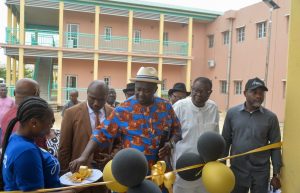
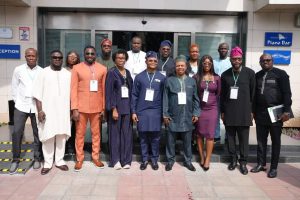
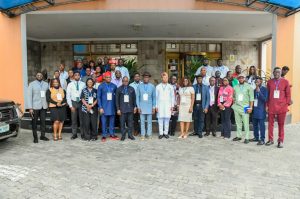
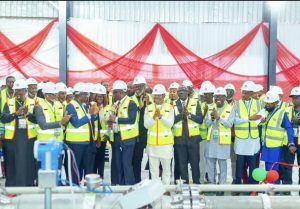
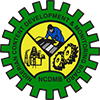
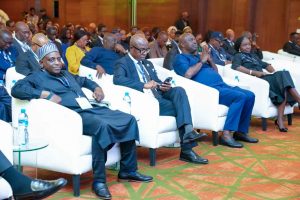




2 Comments
I want to acquire a skill too from this board…for the growth and development of the society.
Good outing. Now, more than at any other time, the intervention of NCDMB is needed urgently nationwide, to set up pilot projects in all the states, and if possible the 774 LGAs in the country that will engage the energy and creativity of over 50 million idle or under employed Nigerian youth, who feel they have no stake in this country.
These projects should be based on local fabrication of needed gadgets, tools, implements and articles required in the various locations. such as carts, building materials, farming implements, storage containers, canoes, wagons and tricycle, either the frames and outer shells, using steel, wood, fibre glass, etc.
The point is to get Nigerians to take the first baby steps towards industrialisation and manufacturing. The country will never earn enough money to import wholesale all our day to day requirements without squandering all our resources.
Until we start manufacturing and encouraging entrepreneurship, we are going nowhere fast.
Te Federal Govt barely gets enough money to service recurrent, expenditure and overheads, and goes a borrowing to fund poorly conceived and unsustainable capital projects.